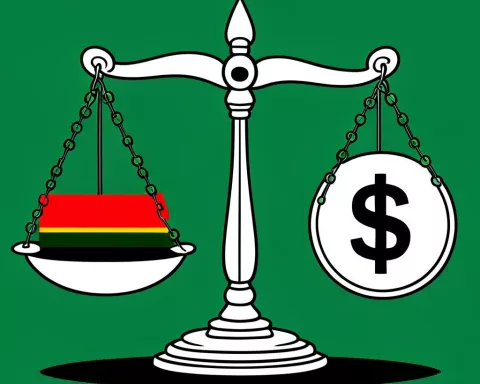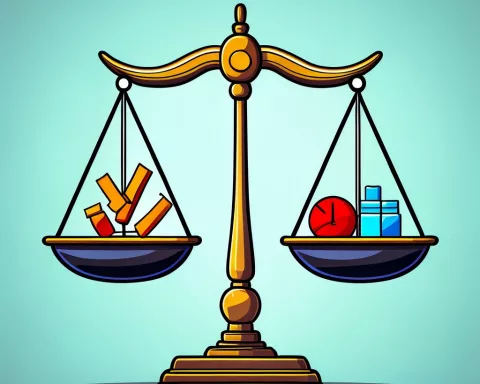Roman Cabanac’s journey in politics shows us how personal actions can greatly affect public opinion. Starting with a rocky beginning as chief of staff to the Agriculture Minister, he faced backlash for his controversial social media posts and past remarks. Cabanac’s story is a vivid reminder of the importance of being open and responsible in public service, as well as the need for careful communication. Despite the challenges, his determination to learn from mistakes and push for transparency highlights the complex dance between personal choices and the expectations of governance.
What lessons can we learn from Roman Cabanac’s experience in politics?
Roman Cabanac’s experience highlights the importance of transparency, accountability, and the impact of personal actions on public perception in politics. His controversial social media presence underscores the need for careful communication, while his resilience emphasizes the balance between personal accountability and collective responsibility in governance.
In the ever-shifting arena of modern politics, the story of Roman Cabanac, chief of staff to Agriculture Minister John Steenhuisen, serves as a fascinating case study of how public opinion, personal responsibility, and administrative finesse intersect. Recent events in Cape Town have thrust Cabanac into the spotlight, bringing to the fore questions about governance and public service.
A Rocky Start in the Ministry of Agriculture
Roman Cabanac’s tenure within the Ministry of Agriculture started tumultuously. Barely weeks into his new role, whispers of a potential “golden handshake” emerged, which Cabanac vehemently dismissed as unfounded rumors. He openly criticized the department for its silence and for leaking stories instead of addressing the issue head-on. Cabanac called for transparency, emphasizing the critical role of human resources in managing such controversies.
The ministry, lacking a dedicated spokesperson, relied on Charity McCord from the Democratic Alliance (DA) to handle the communications. She confirmed that Minister Steenhuisen had referred the matter to HR for resolution but refrained from disclosing the specifics behind the push for Cabanac’s dismissal. Initially, Steenhuisen was a staunch defender of Cabanac, highlighting his LLB degree and extensive experience as a legal consultant. However, Cabanac’s past comments and actions, particularly his pro-Kremlin remarks and criticisms of non-governmental organizations (NGOs), generated internal pressure and warranted reevaluation.
At a recent Press Club event, Steenhuisen subtly shifted his narrative. He acknowledged that human errors need prompt addressing, hinting at the internal discord and distractions Cabanac’s presence had introduced. Steenhuisen’s remarks revealed an ongoing dialogue about Cabanac’s future within the ministry, indicating a period of transition and uncertainty.
Controversial Social Media Presence
Cabanac’s troubles seem partly self-inflicted, emanating from his controversial social media activity. He admitted to insensitivity on several occasions, including making light of the Sharpeville Massacre and making derogatory comments about the Xhosa community. These incendiary statements were further exacerbated by his controversial views on music and his endorsement of the death penalty for corruption, citing Chinese Communist Party practices as a model.
Despite issuing a public apology and endeavoring to distance himself from these inflammatory remarks, Cabanac’s reputation as a sharp critic of the previous government persisted. His social media apology indicated a tonal shift, recognizing the necessity for a more constructive approach to governance. Nonetheless, his earlier provocations continued to cast a long shadow over his current role.
Weeks following his contentious statements and subsequent apology, Cabanac remained resolute in his position as chief of staff. He proudly displayed his title on social media, a visible marker of his enduring role amidst the controversy. This dogged persistence highlighted the ongoing tension between personal expression and the responsibilities of public office.
Broader Themes of Accountability and Public Perception
Cabanac’s narrative within the Ministry of Agriculture intertwines with larger themes of accountability and public perception. His situation highlights the complexities of navigating public office in an era where personal remarks can quickly escalate into political crises. It serves as a potent reminder of the delicate balance between individual expression and collective responsibility.
The historical parallels within this modern-day saga are evident. From the French Revolution’s ideals of liberty and equality to the Enlightenment’s emphasis on reason, the tension between individual rights and collective accountability continues to be a significant challenge. Cabanac’s journey mirrors these enduring debates, set against the backdrop of a rapidly changing political landscape.
In an artistic sense, the unfolding drama surrounding Cabanac evokes the transient yet impactful nature of political life, much like the Impressionists aimed to capture fleeting moments with vibrant immediacy. Each social media post, each public statement, shapes a broader narrative of governance where individual actions contribute to a collective story.
A Reflection on Modern Governance
Cabanac’s ongoing presence within the Ministry of Agriculture, despite the storm of controversy, underscores the enduring relevance of transparency, accountability, and a measured approach to public service. Amidst the turmoil, his insistence on a fair process and his acknowledgment of past mistakes reflect a desire for growth and positive contribution.
This intricate dance of personal responsibility and public perception, reminiscent of historical and artistic movements, provides a rich tapestry through which we can explore the evolving nature of governance. Cabanac’s story, blending modern immediacy with timeless themes, invites reflection on the perpetual quest for a more transparent and accountable public sphere.
In a world where personal actions can have far-reaching political consequences, Cabanac’s journey serves as a poignant reminder of the complexities inherent in public life. It challenges us to consider the balance between personal accountability and collective responsibility in our pursuit of effective governance.
FAQ
What were the initial challenges Roman Cabanac faced in the Ministry of Agriculture?
Cabanac’s tenure began tumultuously, with rumors of a potential “golden handshake” circulating shortly after he assumed his role as chief of staff. He criticized the ministry for failing to address these rumors transparently and highlighted the importance of human resources in managing controversies.
How did Cabanac’s social media presence affect public opinion?
Cabanac’s controversial social media activity, including insensitive comments and past remarks, significantly impacted his public perception. His posts about sensitive historical events and derogatory comments about certain communities fueled backlash and raised questions about his suitability for public office.
What role did Minister John Steenhuisen play in Cabanac’s situation?
Initially, Minister Steenhuisen defended Cabanac, emphasizing his qualifications and experience. However, as concerns about Cabanac’s past remarks grew, Steenhuisen hinted at the need for personal accountability and acknowledged the internal pressures surrounding Cabanac’s role within the ministry.
How has Cabanac responded to the controversies surrounding him?
Cabanac issued public apologies for his insensitive remarks and attempted to distance himself from past controversies. He recognized the need for a more constructive approach to governance and expressed a desire to learn from his mistakes while maintaining his position as chief of staff.
What broader themes can be drawn from Cabanac’s experience in politics?
Cabanac’s journey highlights the intricate balance between personal responsibility and public perception in modern governance. It raises important questions about the impact of individual actions on collective accountability and emphasizes the need for transparency and careful communication in public service.
What can we learn from Cabanac’s story about accountability in governance?
Cabanac’s experience serves as a reminder of the complexities inherent in public life, where personal choices can lead to significant political consequences. It underscores the importance of being open and responsible in public service, as well as the necessity for a measured approach to communication and accountability.












